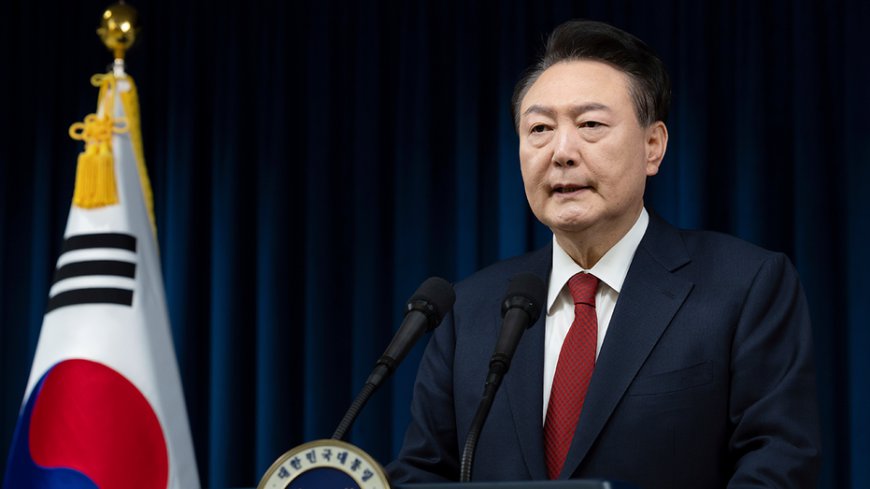South Korea lawmakers vote to impeach president over martial law declaration
South Korean lawmakers on Saturday voted to impeach President Yoon Suk Yeol over his short-lived martial law declaration earlier this month.

South Korean lawmakers on Saturday voted to impeach President Yoon Suk Yeol over his short-lived martial law declaration earlier this month.
The National Assembly passed the motion in a 204-85 vote on Saturday.
Saturday’s vote means that Yoon's presidential powers and duties will be suspended after the copies of a document on the impeachment are delivered to him and to the Constitutional Court.
The court has up to 180 days to determine whether to dismiss Yoon as president or restore his powers. If he's thrown out of office, a national election to choose his successor must be held within 60 days.
NORTH KOREA CONDEMNS SOUTH KOREA AS ‘FASCIST DICTATORSHIP’ AFTER MARTIAL LAW SCARE
Saturday marked lawmakers' second attempt to impeach the South Korean president. Yoon survived an impeachment vote last weekend after most lawmakers of the ruling People Power Party boycotted the floor vote.
Since then, some PPP lawmakers announced their intentions to vote for Yoon's impeachment in a second vote, as public protests against Yoon intensified and his approval rating plummeted.
Though lasting only six hours, Yoon's Dec. 3 martial law declaration – the first of its kind in more than four decades in South Korea – has thrown the East Asian nation into political turmoil, halting diplomatic activities and rattling financial markets. Yoon was forced to lift his decree after parliament unanimously voted to overturn it.
SOUTH KOREA'S FORMER DEFENSE MINISTER ATTEMPTED SUICIDE AFTER HE WAS ARRESTED OVER MARTIAL LAW PROBE
After declaring martial law, Yoon sent hundreds of troops and police officers to the parliament to try to impede its vote on the decree before they withdrew after the parliament rejected it. No major violence occurred.
But in the days since, thousands of protesters have poured into the streets of the capital, Seoul, braving the bitter cold, calling for the president's ouster and arrest. Yoon's conservative supporters, meanwhile, have held counterprotests, denouncing attempts to impeach the president.
Yoon has been banned from leaving South Korea, as law enforcement authorities are investigating whether he and others involved in the martial law declaration committed rebellion, abuse of power and other crimes. If convicted, the leader of a rebellion plot can face the death penalty or life imprisonment.
Yoon has the presidential privilege of immunity from criminal prosecution, but that doesn't extend to allegations of rebellion or treason. Subsequently, Yoon could be investigated, detained, arrested or indicted over his martial law decree, but many observers doubt that authorities will forcefully detain him because of the potential for clashes with his presidential security service.
Yoon's defense minister, police chief and the head of Seoul's metropolitan police agency have been arrested over their roles in the martial law case. Other senior military and government officials also face investigations.
What's Your Reaction?

























